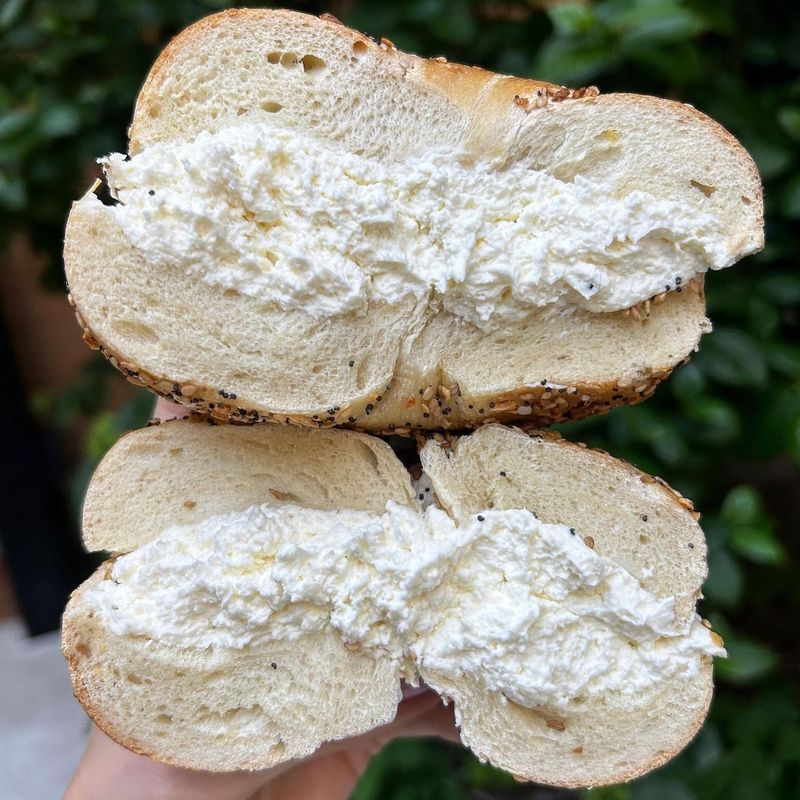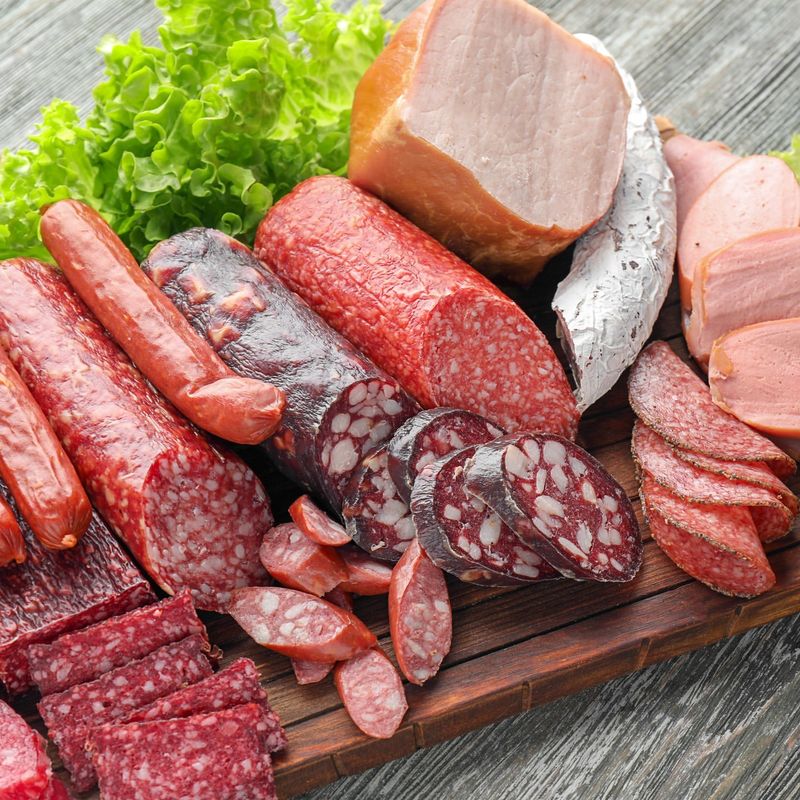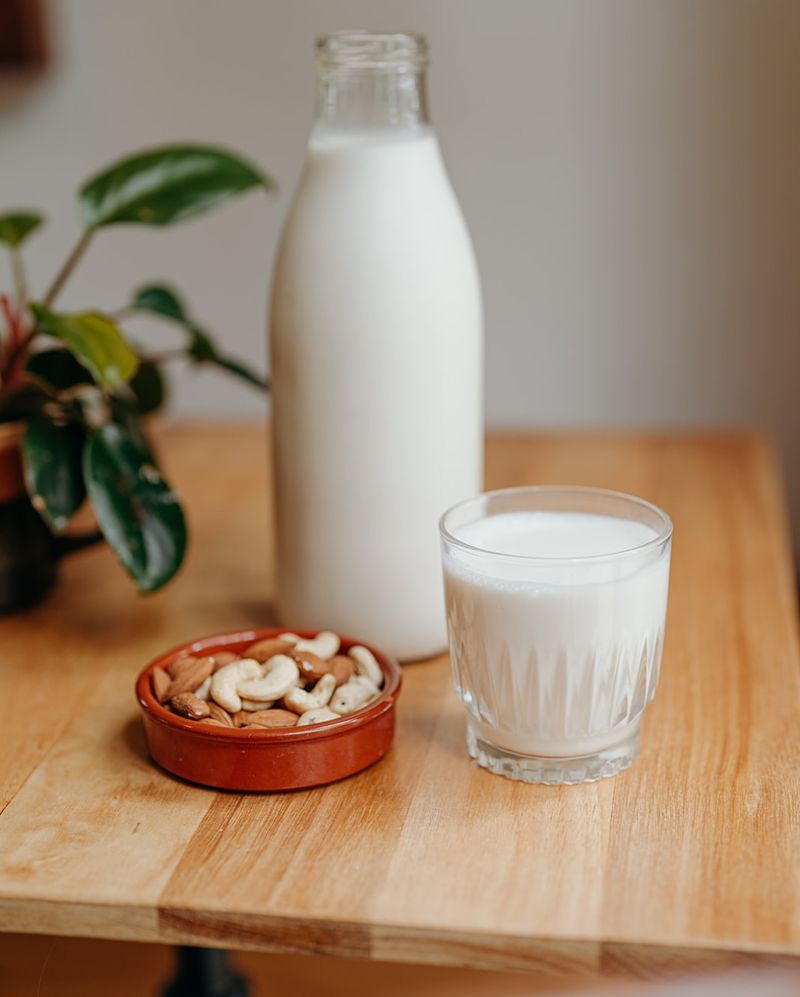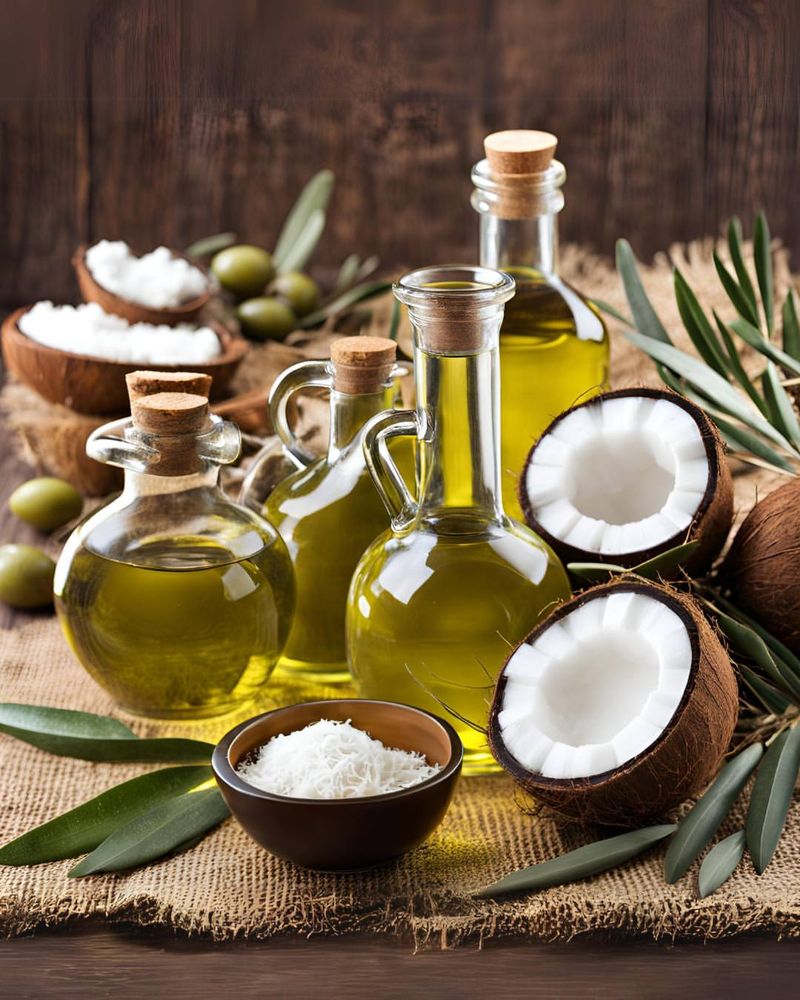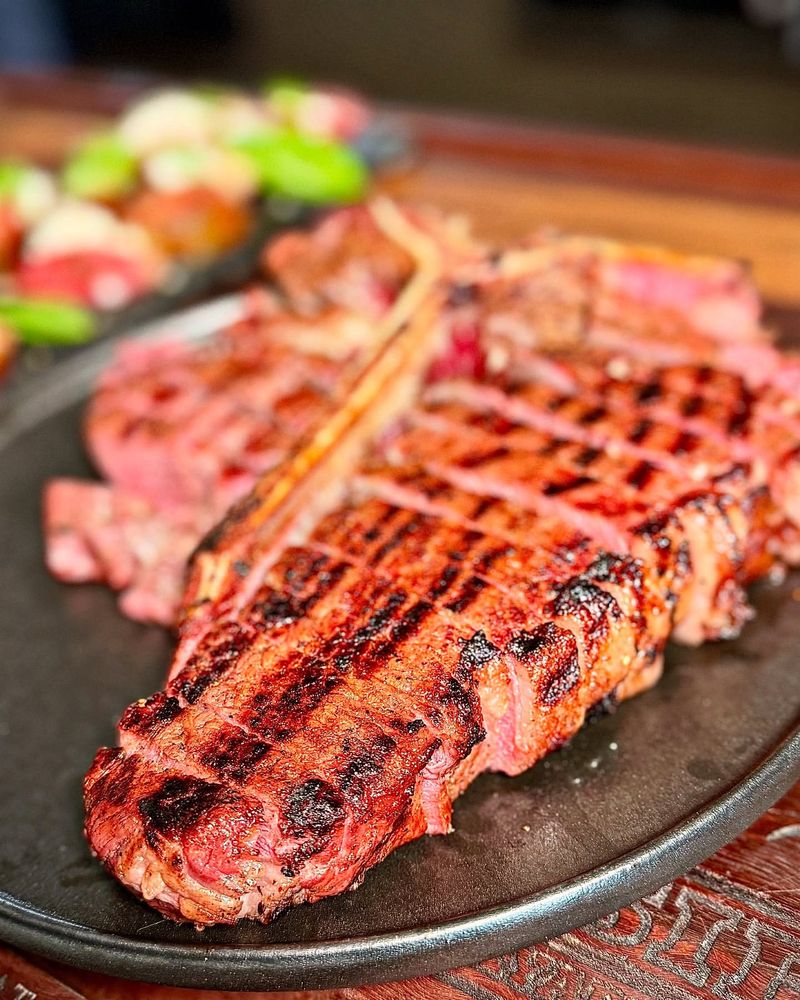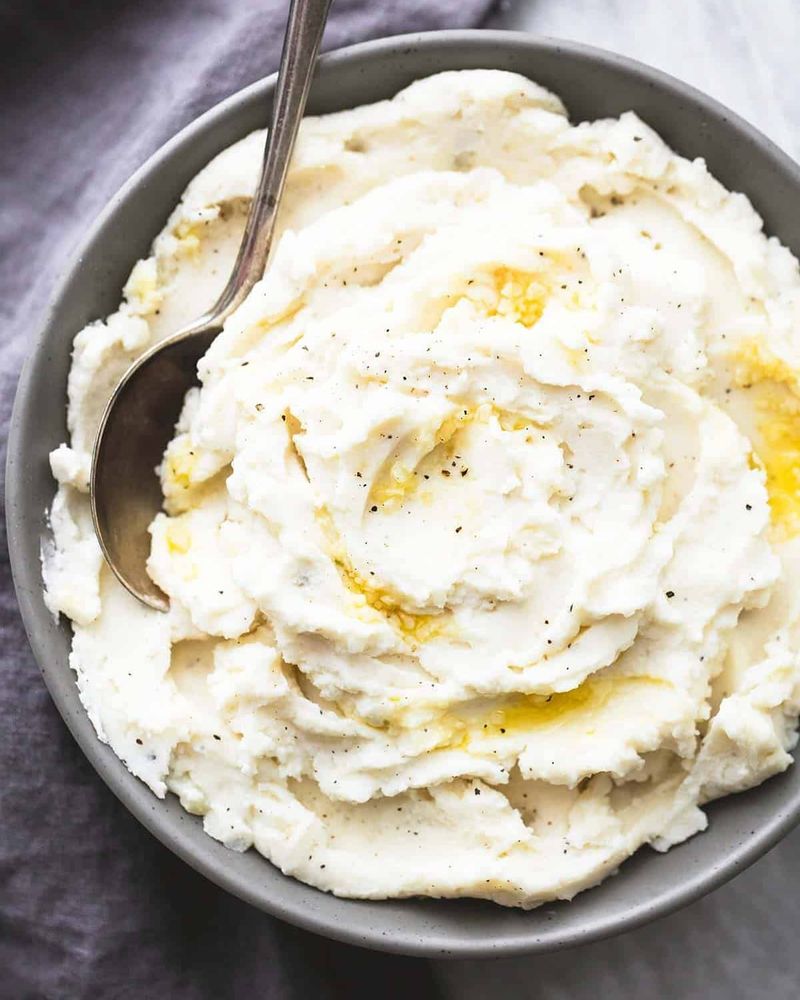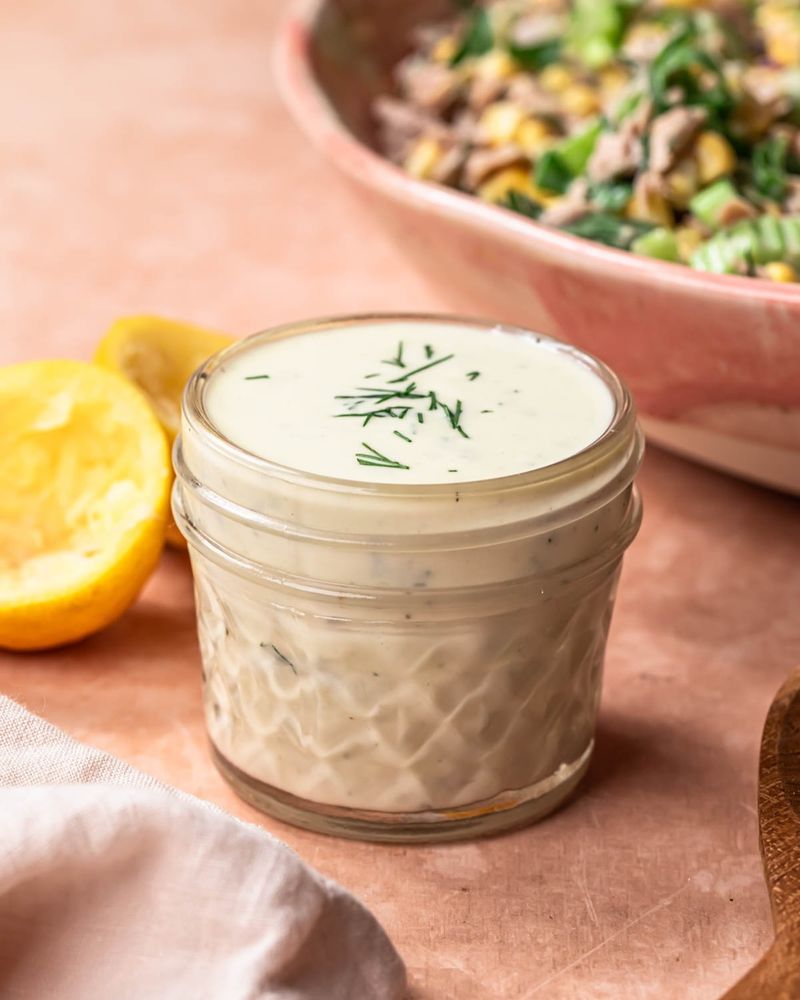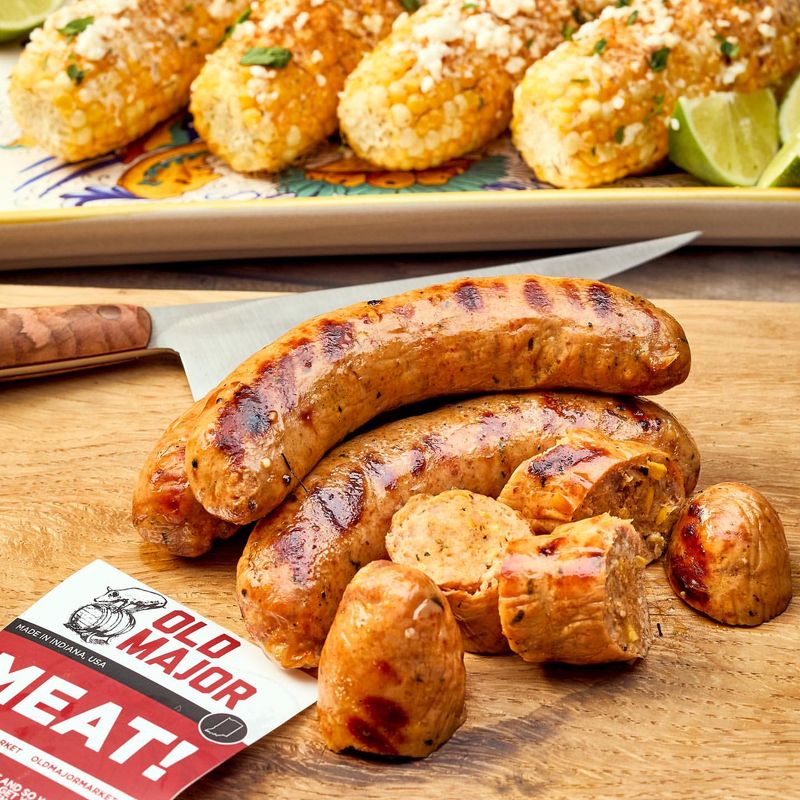In a world where health is paramount, maintaining a balanced diet plays a crucial role in managing cholesterol levels. If you are mindful of what you eat, it can significantly impact your overall wellbeing.
As we embark on this journey, let me guide you through the 28 foods that might be harmful if you’re dealing with high cholesterol.
1. Bacon
When it comes to bacon, morning meals often feel incomplete without its crispy presence. However, its high saturated fat content can elevate cholesterol levels rapidly.
Hence, choosing alternatives like turkey bacon might be wise. If you can’t resist, limit your intake to occasional treats. Remember, moderation is key in any diet. How you cook it can also make a difference.
Baking instead of frying can reduce some of the fat content, making it a slightly better option if bacon is a must-have.
2. Butter
How often do we spread butter on our toast without a second thought? Rich in saturated fats, butter is a silent contributor to high cholesterol. Opting for substitutes like margarine or olive oil can make a significant difference in your health journey.
If you’re baking, consider using applesauce or yogurt as healthier alternatives. Where possible, always read labels to ensure you’re making the healthiest choice. Avoiding excess can lead to a noticeable improvement in your cholesterol levels.
3. Cream Cheese
Though cream cheese can make your bagels heavenly, it’s packed with saturated fats. These can increase your cholesterol levels if consumed frequently. However, there are lighter versions available that taste just as good.
Keep an eye out for low-fat or plant-based options in stores. Limiting consumption to occasional indulgences can keep cholesterol levels in check. Hence, balance is essential in maintaining both satisfaction and health.
4. Ice Cream
Where ice cream is a beloved treat, its high sugar and fat content can affect cholesterol negatively. However, enjoying it in moderation is key.
Opt for fruit-based or yogurt options to satisfy that sweet craving without the cholesterol load. If making at home, consider using milk substitutes like almond or oat milk. These simple swaps can contribute to a healthier lifestyle while still indulging your sweet tooth.
5. Cheese
However tempting cheese platters may be, they are often laden with saturated fats. Reducing your cheese intake can help manage cholesterol levels more effectively.
Opt for low-fat versions or smaller portions to enjoy the flavors without the guilt. Pairing with fruits and vegetables can also make for a balanced snack.
When planning meals, consider using cheese as a garnish rather than the main ingredient to maintain a healthier diet.
6. Processed Meats
Processed meats like sausages and salami offer convenience but pose cholesterol risks. These meats are often high in unhealthy fats and preservatives. Switching to fresh, lean meats or plant-based alternatives can be beneficial.
If ready-to-eat is a must, opt for low-sodium or nitrate-free versions. Being mindful of these choices can lead to healthier eating habits and better cholesterol levels. Always balance convenience with health.
7. Egg Yolks
Egg yolks, though nutritious, are high in cholesterol, especially if consumed daily. Consider using egg whites or cholesterol-free egg substitutes in your diet. These alternatives provide protein without affecting your cholesterol negatively.
If you enjoy whole eggs, try limiting to a few per week. Balancing your egg consumption can help maintain a healthier lifestyle. Always explore creative recipes that emphasize whites over yolks.
8. Pastries
Though pastries are delightful, their high butter and sugar content can spike cholesterol. Choosing whole grain or sugar-free options can be a healthier delight.
If you enjoy baking, consider using healthier fats and sweeteners. These alternatives can make your treats less harmful without compromising taste. For those special occasions, enjoy pastries in moderation.
Remember, it’s all about finding the right balance to maintain your health.
9. Whole Milk
Whole milk, rich and creamy, can be a cholesterol concern when consumed frequently. Opt for skim or plant-based milk alternatives to reduce cholesterol intake. These choices can be beneficial for both heart health and cholesterol levels.
If you’re accustomed to whole milk, gradually transitioning can ease the change. Incorporating these alternatives in recipes can also enhance your diet while maintaining flavor. Remember, every small change counts towards better health.
10. Liver
Where liver is nutrient-rich, it’s also high in cholesterol. Moderation is essential if you include it in your diet. Consider consuming liver occasionally rather than regularly to manage cholesterol levels.
If liver is a preference, balance it with plenty of vegetables. Exploring diverse recipes can introduce new flavors while keeping health in check. Remember, variety and balance are keys to a sustainable diet.
11. Coconut Oil
Though coconut oil is popular for its flavor, its saturated fat content may affect cholesterol. Using it sparingly in cooking can help maintain balance.
If you’re exploring healthier oils, consider olive or canola oil. These alternatives can provide the desired flavor without the cholesterol concern. Always weigh the pros and cons of your oil choices.
Remember, a little goes a long way in cooking and health.
12. Fast Food Burgers
Fast food burgers, tempting as they are, can be a cholesterol trap due to their fat content. Opting for homemade versions with leaner meats can be a healthier choice. If you’re dining out, seek grilled or smaller portion options.
Balancing indulgence with mindful eating can benefit your cholesterol and overall health. Remember, occasional treats are okay, but moderation is key. Always be mindful of your choices.
13. Palm Oil
Though palm oil is a common ingredient, its saturated fat content can impact cholesterol. Where possible, choose oils like sunflower or safflower as healthier options. These alternatives can enhance your dishes without compromising health.
Always check labels when purchasing products, as palm oil is prevalent in many foods. Being informed can help you make better dietary decisions consistently. It’s all about making small, impactful changes to maintain cholesterol balance.
14. Packaged Baked Goods
Packaged baked goods, often convenient, can be high in unhealthy fats and sugars. Making your own treats allows control over ingredients, offering healthier options. If store-bought is necessary, read labels for low-fat or reduced-sugar versions.
Always balance convenience with health benefits. Remember, homemade often means healthier. Emphasize quality over quantity when it comes to sweet indulgences. Simple swaps can have a profound effect on cholesterol management.
15. Ghee
Ghee, a staple in many cuisines, is rich in saturated fats that affect cholesterol. Consider using it sparingly or exploring healthier oil alternatives for cooking.
If you’re fond of ghee, balance its use with foods high in fiber. This approach can help manage its impact on cholesterol. Always be mindful of portion sizes and frequency. It’s about finding a balance between tradition and health benefits.
16. Mac and Cheese
Mac and cheese, a comfort food favorite, is often high in saturated fats. If you’re a fan, consider making a lighter version with low-fat cheese and whole-grain pasta. This simple change can transform it into a healthier meal.
Remember, adding vegetables can increase nutritional value without sacrificing taste. Always portion wisely, enjoying it as a treat rather than a regular dish. These adjustments can make a big difference in cholesterol levels.
17. Pizza
Though pizza is a universal favorite, its cheese and processed meats can spike cholesterol. Opting for thin crusts, less cheese, and plenty of vegetables can make it healthier.
If you’re making pizza at home, consider whole grain bases and lean protein toppings. These choices enhance flavor while being mindful of health. Remember, small modifications can lead to significant benefits. Enjoy pizza as part of a balanced diet.
18. Whipped Cream
Whipped cream, a delight on desserts, is high in saturated fats. If you can’t resist, use it sparingly or explore lighter whipped toppings. These alternatives can offer the same pleasure without the cholesterol concern. Remember, it’s all about moderation.
Enjoying desserts without overindulgence can be part of a healthy lifestyle. Always aim to balance indulgence with mindful eating. Consider fresh fruit as a topping alternative for a healthier dessert.
19. Red Meat
Though red meat is a staple protein for many, its saturated fat content can lead to high cholesterol. If reducing your intake seems challenging, consider leaner cuts or swapping with poultry and fish.
This small change can have a significant impact on your health. Always trim visible fat before cooking and consider portion sizes. Consuming red meat occasionally, rather than daily, can make a big difference in cholesterol management.
20. French Fries
French fries, though irresistible, are typically deep-fried and high in unhealthy fats. If they are a must-have, consider baking them or using an air fryer for a healthier version. These methods maintain the beloved crispiness without excessive oil.
Remember, opting for sweet potato fries can also be a nutritious swap. Always enjoy in moderation to keep cholesterol in check. It’s about making smarter choices while enjoying your favorites.
21. Margarine
Margarine, although marketed as a butter alternative, can contain trans fats affecting cholesterol. If you use margarine, look for trans-fat-free versions. Consider healthier spreads like avocado or nut butter for flavor and health benefits.
Always read labels to make informed choices. Remember, small changes can significantly impact health. Balancing taste and nutrition is essential in managing cholesterol effectively. Every bit of awareness counts.
22. Shrimp
Shrimp, while delicious and protein-rich, contains cholesterol that may raise levels if consumed frequently. Moderation is vital for seafood lovers. If you enjoy shrimp, balance it with high-fiber foods and vegetables.
This combination can aid in cholesterol management while enjoying seafood. Always consider portion sizes and frequency in your diet. Explore diverse preparation methods to enjoy shrimp healthily. Variety is key.
23. Sour Cream
Sour cream adds richness to dishes, but its saturated fat content can impact cholesterol. If you’re fond of it, consider low-fat versions or yogurt as alternatives. These options provide similar flavors with fewer health concerns.
Remember, moderation is crucial. Using sour cream as a garnish rather than a main element can help maintain a balanced diet. Small adjustments lead to healthier eating habits.
24. Creamy Salad Dressings
Creamy salad dressings, though flavorful, are often high in unhealthy fats. If you’re a fan, look for lighter versions or make your own with yogurt or olive oil. This simple change can enhance taste without the cholesterol worry.
Remember, salads can be delicious with just a hint of dressing. Always focus on the freshness and quality of the ingredients. Dressing wisely can make salads a heart-healthy choice.
25. Fried Chicken
If fried chicken is your comfort food, reconsider its place in your diet. The deep-frying process infuses chicken with unhealthy fats, contributing to cholesterol spikes.
Where possible, opt for grilled or baked versions. Not only is it healthier, but it can be equally delicious with the right seasoning. This simple change can lead to significant health benefits over time.
For those special occasions, try air-frying to achieve that crispy texture with much less fat.
26. Chocolate
Though chocolate is beloved, its fat content can affect cholesterol, especially milk chocolate. Dark chocolate, in moderation, is a better choice.
If you’re a chocolate lover, aim for varieties with a high cocoa content. This not only satisfies cravings but can offer heart-health benefits. Remember, moderation is essential, even for healthier options.
A small piece can go a long way in satisfying your sweet tooth without impacting cholesterol.
27. Pork Sausages
Pork sausages, a breakfast favorite, are high in unhealthy fats and sodium. If avoiding completely is challenging, consider leaner meat alternatives like turkey or chicken sausages. These provide flavor with less cholesterol impact.
Remember, moderation is key in any diet. Balancing with fiber-rich foods can aid in better cholesterol management. It’s about making informed choices without sacrificing taste.
28. Donuts
Donuts, a delightful treat, are often deep-fried and sugary, affecting cholesterol. If you enjoy them, do so sparingly and consider baking your own for a healthier version.
These homemade treats can be just as satisfying with healthier ingredients. Remember, sweet indulgences are best enjoyed occasionally. Balancing with a nutritious diet can help maintain heart health.
Always aim for variety and moderation in your dessert choices.




